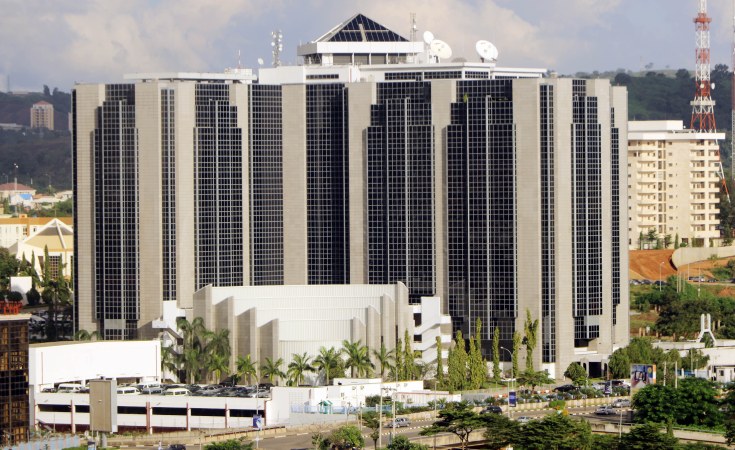The U.S. Federal Reserve's decision on Wednesday, the biggest in 22 years, is expected to reverberate around the globe and spur Nigeria and other economies to hike rates in the coming weeks.
A 0.5 percentage points interest rate hike announced by the United States' Federal Reserve on Wednesday is expected to reverberate around the globe and spur Nigeria and other economies to hike rates in the coming weeks.
The U.S. Fed raised its benchmark interest rate to a target rate range of between 0.75% and 1% on Wednesday, the largest hike in 22 years. The decision follows a 0.25 percentage point increase in March, the first increase since December 2018.
Analysts say that rate rises are expected in the coming weeks as the Economist Intelligence Unit expects the Fed to raise rates seven times in 2022, reaching 2.9% in early 2023.
The new hike marks the bank's latest effort to contain spiking costs being felt by households around the world in the wake of the coronavirus pandemic and the war between Russia and Ukraine.
A hike in rate typically makes it more expensive for people, businesses and governments to borrow, with a ripple effect on demand for goods and services and price inflation.
However, things could go wrong in the midst of supply constraints and other socio-economic uncertainties.
The new decision of the Fed--which is in charge of the world's largest economy-- is expected to have widespread effects on other countries around the world as most commodity markets, including Nigeria, rely on the dollar.
Global rate hike
On Thursday, in the wake of U.S' decision, the Bank of England increased interest rates from 0.75% to 1% in order to tackle soaring inflation that is expected to rise above 10% in the coming months. The bank also warned that the cost-of living crisis could plunge the economy into recession in 2022.
The monetary policy committee (MPC) voted by a majority to raise its base rate, lifting the cost of borrowing to the highest level in 13 years.
Earlier on Wednesday, Gulf states whose currencies are tied to the dollar had responded to the Fed with interest rate rises of their own.
Australia's central bank raised interest rates for the first time in more than a decade, following the lead of Asia-Pacific economies taking action to tame rising inflation. On Tuesday, the Reserve Bank of Australia (RBA) raised the benchmark interest rate to 0.35 percent, up from a record low of 0.1 percent.
On its part, the Reserve Bank of India (RBI) on Wednesday raised the repo rate--at which it lends money to commercial banks, backed by with securities --by 40 basis points to 4.4%. The bank had reduced the rate to a record low of 4% during the Covid-19 pandemic.
Nigeria's Dilemma
Nigeria has not altered its interest rate since September 2020 when the CBN reduced the monetary policy rate from 12.5 per cent to 11.5 per cent.
In the midst of the global hike, Nigeria faces a dicey situation amid efforts to contain inflation, keep domestic prices stable, and ensure economic growth.
At the last MPC meeting in March, aside from keeping the rate at 11.5 percent, members of the MPC also voted to retain the range of +100/-700 basis points around the MPR, giving the rate a spread from four per cent to 12.5 per cent. It also held the cash reserve ratio at 27.5 per cent, and maintained the liquidity ratio at 30 per cent.
Although the benchmark rate is pegged at 11.5 per cent, banks typically charge manufacturers and other lenders between 12 to 30 per cent on loans.
Yet in the light of recent hike in rate across economies around the world amid rising prices, the CBN may be spurred to raise benchmark rate to keep inflation at bay. This may also increase the cost of borrowing and, inevitably, stifle productivity.
Earlier, the Manufacturers Association of Nigeria had said the average rate at which its members borrowed money from banks was 20.75 per cent and 21.25 per cent in 2020 and 2019, respectively.
"It is important for the CBN to carry out a coordinated reduction in the monetary policy rate and lending rate," MAN said in a statement.
Tough Call
In January, the International Monetary Fund (IMF) urged Nigeria and other emerging markets with stronger inflation pressures or weaker institutions to swiftly let currencies depreciate and raise benchmark interest rates. The fund urged central banks to clearly and consistently communicate their plans to tighten policy, adding that countries with high levels of debt denominated in foreign currencies should look to hedge their exposures where feasible.
The National Bureau of Statistics (NBS) in its last report revealed that Nigeria's Consumer Price Index--which measures inflation--rose to 15.92 per cent in March. The rise was recorded on the back of rising energy cost, insecurity and other concerns. Meanwhile, the IMF has projected that Nigeria's inflation rate will hit 16.1 per cent in 2022.
At the CBN's MPC meeting slated for later this month--between May 23rd and 24th--it's plausible that making a definitive decision on benchmark interest rate will be be a tough call for the nation's apex bank.


